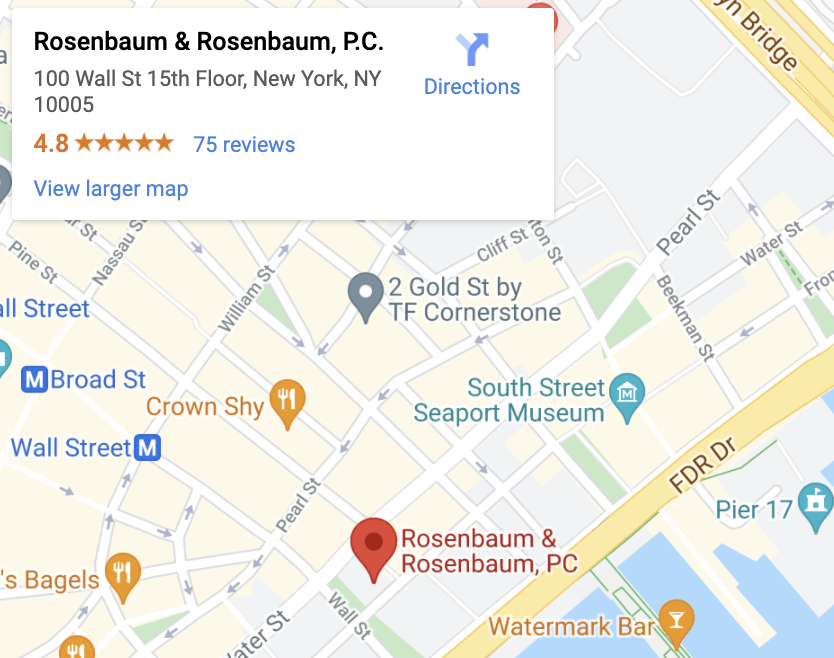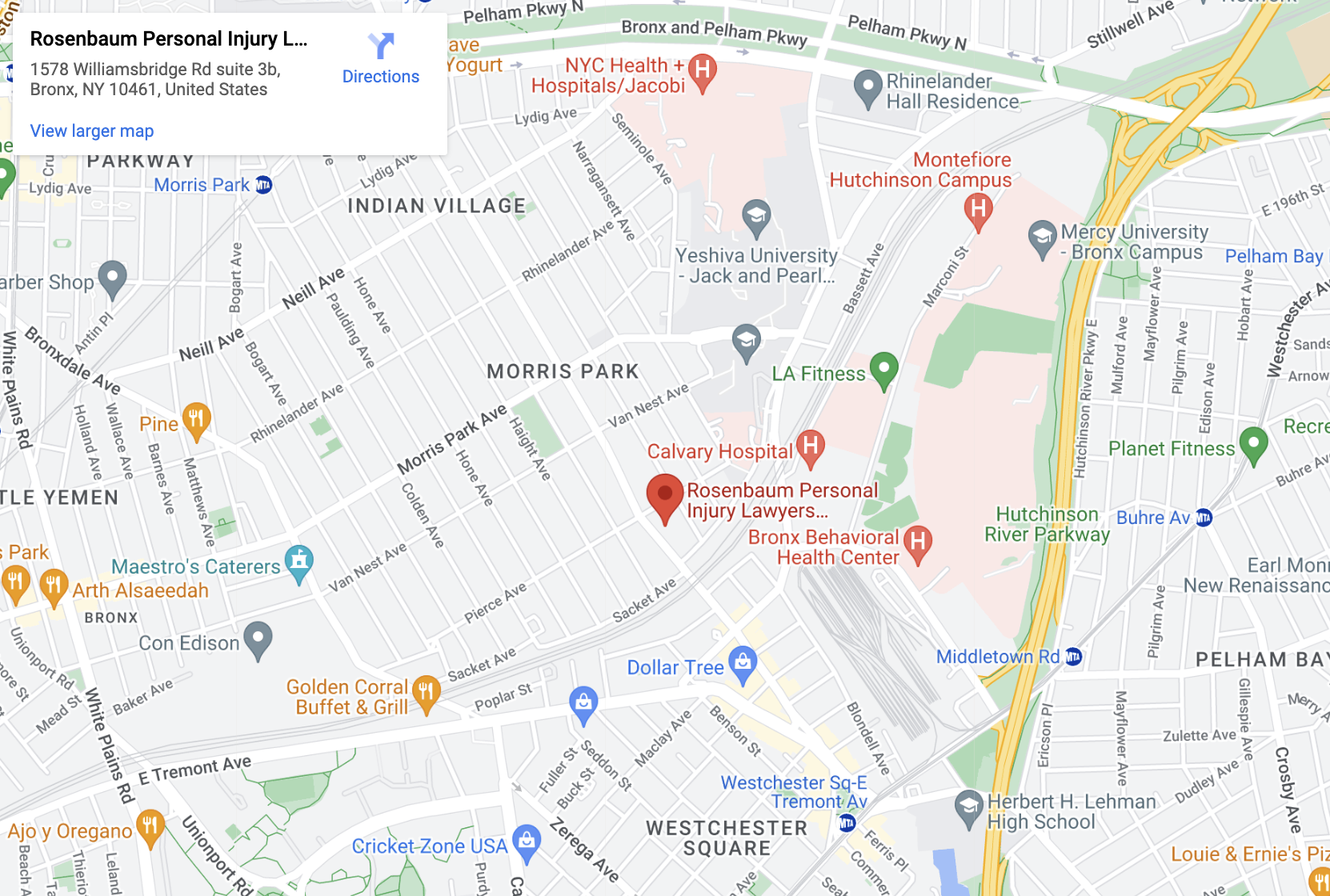Types of Damages Available in Personal Injury Cases

When another party injures you due to carelessness, you may be entitled to compensation for your damages from the incident. You must prove the other party was at fault for your injuries and damages by proving the elements of negligence. However, once you prove your case, you should be entitled to damages in a personal injury case.
Table of Contents
What Types of Damages Can I Recover for a Personal Injury Claim?
The types of damages you can recover in a personal injury claim depends on your case’s circumstances and facts. However, many accident victims can receive compensation for general damages and special damages. In a few instances, the person may also receive compensation for punitive damages.
Let’s look at each category of damages in more detail.
Special Damages
Special damages are economic damages. These damages represent your financial losses because of the accident or injury.
Examples of special or economic damages include:
Medical Bills
These expenses come from diagnosing and treating your injuries, and they include costs for:
- Emergency room visits
- Hospitalizations and surgeries
- Physicians’ bills
- Diagnostic tests and procedures
- Medications, medical supplies, and medical equipment
- Treatment for psychological injuries (i.e., anxiety, depression, PTSD, etc.)
- Ambulance services
- Chiropractic visits
- Physical, occupational, vocational, and other therapies
- Personal care and in-home health care
- Long-term personal care or medical care
- Property damage
You need documentation of the charges, such as copies of invoices, bills, or receipts to include the amounts in your personal injury claim.
Loss of Income and Benefits
Loss of income includes lost wages and salaries. However, it also includes benefits, commissions, bonuses, and other forms of income. If you cannot work because of your injuries, you can include these losses in your injury claim.
You may also be entitled to compensation for future lost income if you have a permanent disability or impairment that prevents you from returning to work. If you can work but cannot earn as much because of your disability, you may receive compensation for diminished earning capacity.
Other Out-of-Pocket Expenses and Losses
Lost income and medical expenses are generally the two largest categories of economic damages. However, there may be other out-of-pocket expenses that you can include in our injury claim.
Examples of other expenses might include:
- Travel to and from doctor’s visits
- Help with household chores
- Physical medical aids
- Modifications to homes and cars for permanent disabilities
You must keep all receipts and statements if you want to be reimbursed for financial losses and expenses related to your personal injury. Creating file folders to organize and store your receipts and bills can be helpful.
General Damages
General damages are non-economic damages. They represent losses that are non-monetary. These damages include the pain and suffering you experienced because of the accident and your injuries.
Examples of general or non-economic damages include:
- Physical discomfort and pain caused by your injuries
- Mental anguish and trauma
- Emotional distress, including psychological injuries such as PTSD, anxiety, and depression
- Loss of consortium, including support, love, companionship, guidance, intimacy, and family relations
- Embarrassment, inconvenience, and loss of enjoyment of life
- Decreases in your quality of life
- Permanent impairments and disabilities
- Severe disfigurement and scarring
It can be difficult to put a price on someone’s suffering and pain. However, that is what must be done to settle your case. We argue for the highest value for non-economic damages, while the insurance company argues for a much lower value.
You can help document your general damages by seeking medical care for psychological conditions. Creating a “pain and suffering” journal can also be helpful.
Keep detailed notes about your pain levels, depression, anxiety, activities you cannot perform, and other information explaining how the accident has negatively impacted your quality of life.
Punitive Damages
Punitive damages are rarely awarded in a personal injury case. However, some cases may support an award of punitive damage.
General damages and special damages are compensatory damages. These damages compensate you for your losses and damages.
However, punitive damages punish the party who caused your injuries. Punitive damages discourage the party and other parties from repeating the behavior. A court punishes an at-fault party by making them pay punitive damages to the victim.
Punitive damages are generally only awarded when the at-fault party was grossly negligent or intentionally tried to harm the victim. For example, punitive damages could be awarded in a car accident case if the at-fault driver was inebriated.
Valuing Damages for a Personal Injury Case
Our injury attorneys work diligently to get you the most money possible for your claim. Our legal team works with you to carefully document damages. Our lawyers argue for the maximum value based on the facts of your case.
Three important things to know about valuing damages for a personal injury case are:
Valuing Future Damages
If you sustain an impairment or permanent disability, you may be entitled to future damages. Future damages generally include future income loss, decreases in earning potential, and ongoing medical and personal care.
It can be challenging to calculate the value of future damages. We may retain medical experts, economists, and financial experts who can use various factors and formulas to calculate your claim for future damages.
Multiplier Method for Pain and Suffering Damages
There is not a standard way to calculate non-economic damages. However, many insurance companies, injury lawyers, and juries use the multiplier method to value general damages.
A number between 1.5 and five is assigned to your case based on the severity of your injuries. For example, if you sustained a permanent disability, the number may be five.
However, if you recovered fully after surgery and a couple of months of physical therapy, a three could be assigned. Cases involving minor injuries might receive a 1.5 or two.
The number or “multiplier” is multiplied by the total financial losses for your case. The result is the value of your non-economic damages.
In some cases, a per diem may be used to value pain and suffering. A per diem is a daily amount you receive for your pain and suffering damages. The per diem is multiplied by the number of days between the accident and when your doctor released you to calculate the value of general damages.
Contributory Negligence Claims
If the other party is blaming you for the accident, this may reduce the amount of money you can receive for your personal injury claim. The good news is that New York’s pure contributory negligence laws do not bar you from recovering some money for your damages.
You can be partially at fault and still recover money for your claim. The compensation you receive for your claim is reduced by the percentage of blame you share for the cause of the accident.
If an insurance company tries to blame you for a car accident, fall, or other personal injuries, call our office as soon as possible. The insurance company may be trying to avoid paying you the total value of your claim, or it could be trying to deny your injury claim outright.
Contact Our New York Personal Injury Lawyers for a Free Consultation
Before you agree to a settlement or sign any documents for an insurance company, you may want to discuss your injury claim with a New York personal injury attorney. Once you sign the settlement agreement, you generally lose your right to pursue any other claims related to the accident and your injuries.
Check to make sure you are receiving a fair settlement for your injuries, economic losses, and other damages. Contact our law firm to schedule your free consultation with a personal injury lawyer in New York.



